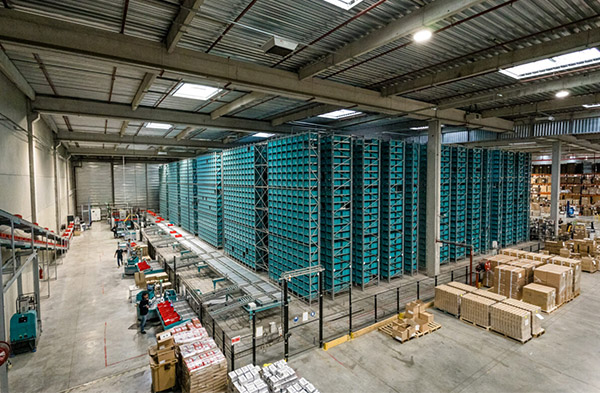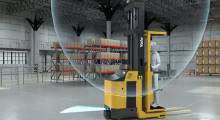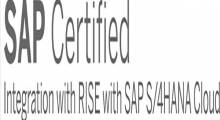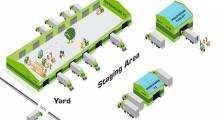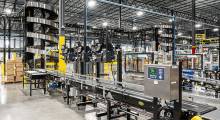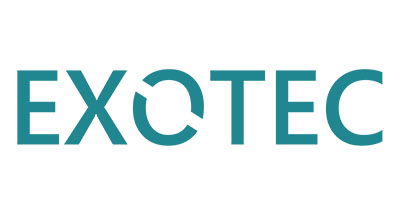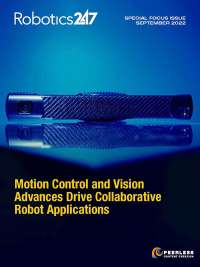The term “elegance” appears frequently on Exotec's website, and you might just dismiss it as another tagline in the vast sea of content marketing. However, for the company, this is not just a marketing phrase; it is also a design philosophy.
The approach started with the idea of mathematical elegance. That is, finding solutions and proofs that are surprisingly simple yet insightful. There are plenty of definitions of mathematical elegance out there, but the key tenets typically include:
- Simplicity: An elegant mathematical proof or solution tends to be simple, cutting straight to the heart of the problem without unnecessary steps or complicated calculations.
- Creativity: Elegant solutions often involve an innovative or unexpected approach to the problem. They may use creative insight to bypass a seemingly difficult or complex issue.
- Generality: If a solution not only solves the problem at hand but also can be applied to a wider class of similar problems, it may be considered more elegant. Proof that covers a general case instead of just a specific instance often exhibits elegance.
The bottom line is elegant solutions make complex things simple.
Rein in warehouse complexity
Warehouses are complex, storing, picking, packing, and shipping thousands or even millions of items every day, with little to no room for error. Unfortunately, this means automated solutions built for warehouses often mirror this complexity with convoluted designs that require an immense amount of engineering to implement and maintain.
Traditional automated storage and retrieval systems (ASRS) demonstrate that point, according to Exotec.
Take a traditional shuttle system as an example. These systems typically consist of shuttles dedicated to specific aisles and a series of elevators and conveyors that help move goods between multiple levels in an aisle and eventually get them to warehouse associates.
This complexity puts stringent limitations on the system, especially when it comes to the flexibility of the ASRS. For instance, scaling a shuttle system could involve significant modifications to the existing infrastructure, costing time and money, said the company.
In addition, if a single point of this system fails—such as an elevator—then a large portion of inventory could become inaccessible for a long period of time, it noted.
Making things easy is hard
Exotec claimed that it did the hard work of making things easy from the moment its autonomous mobile robots (AMRs) leave its manufacturing plant in France all the way to installation, maintenance, and eventually scaling the system to fit the evolving customer needs. It said this is possible because of the design choices it made when conceptualizing the Skypod system. Its key components include:
- Storage: Exotec said the simple design of its static racks allows for quick deployment (weeks) and easy expansion (days) of existing systems. It also offers a choice between storage bins and trays enabling both piece and case picking.
- Robots: The company added that its robots are the only moving part of the system. Each robot is mission-agnostic so that even in the event of a failure, the system continues to operate and prioritize the most urgent orders with the rest of the fleet. This also allows for a rapid retrieval times of two minutes or less for all SKUs within the system, it said.
- Picking stations: Stations enable operators to stand in one location while Exotec's Skypod robots travel from the racks to the stations with the items needed for each order. The company asserted that it has designed everything, from the height of the bins and screens to the padded resting pads, to reduce strain and fatigue for human operators.
- Software: Exotec said its “end-to-end” warehouse software orchestrates every element of the Skypod system and coordinates it with third-party equipment. The software uses advanced algorithms that connect to any warehouse management system (WMS) and warehouse control system (WCS) to coordinate and optimize order fulfillment.
Warehouses may be complex, but automation doesn't need to be
Instead of iterating on existing ASRS designs, Exotec said it invented a new one with each component designed to be simple to deploy, operate, maintain, and scale. Since warehouse operations are often complex, the company said it didn't want to add to that.
Exotec said it doesn't conduct lengthy projects that require years of planning and “Frankensteining” together different bespoke solutions. Instead, it sells products that it said are modular, performant, and reliable. That is what “elegance” means for the company, which has offices in Atlanta; Landshut, Germany; and Tokyo.
Article topics
Email Sign Up

